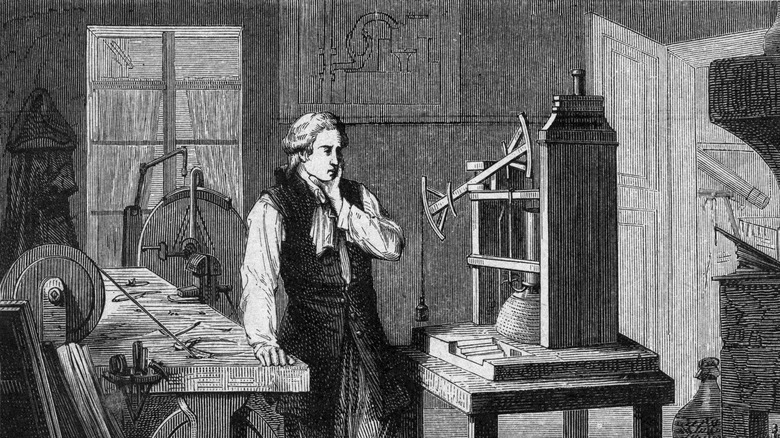Why Things Are Still Measured In Horsepower
With Amazon founder Jeff Bezos jetting off to space and Mark Zuckerberg developing the Metaverse, it may seem outdated to still use the term horsepower to measure how fast our cars' engines accelerate while zooming down the highway. To better understand why this term has stuck around in spite of mass technological advances, it's important to first understand where it came from.
In the late 1700s, Scottish engineer James Watt came up with the term horsepower to compare the power of his most recent invention, the steam engine, to something the public was familiar with. He landed on horses, which were still used at the time for farming, hauling, and transporting goods and people (via Live Science). Watt derived the term horsepower by calculating how much power a horse used to churn a mill wheel, with each unit of horsepower representing 33,000 foot-pounds of work per minute, per Britannica. Interestingly, the maximum power output per minute of a human is actually closer to one unit of horsepower than a horse's maximum power output per minute, which is closer to 15 horsepower.
Why the term stood the test of time
Why exactly the term has stuck around through the centuries to follow is unclear, but it may be due to the fact that it became tied to critical inventions in our developing society. The development of the steam engine was arguably what sparked the Industrial Revolution, according to Interesting Engineering. A word like horsepower conveyed the "desired redundancy of the old and simultaneously [ushered] in the new," senior lecturer in English language at the University of Winchester in the United Kingdom Eric Lacey told Live Science, allowing it to stay relevant in society's collective mind.
Perhaps Watt's discovery wouldn't have even become widely used had he not discovered this manner of relating it to them. The coining of the term horsepower was therefore essentially a marketing technique for Watt. With most of the public still using draft horses to earn their livelihood, he needed to prove the efficiency of his new invention in terms they would understand (via Science ABC).
Although his calculations weren't entirely precise, he proved that his new steam engine models could produce five times the horsepower of a single man's draft horse, and his audience was sold (per Science ABC). Watt was therefore not just a genius in terms of his engineering, but in terms of linguistics and business as well.

